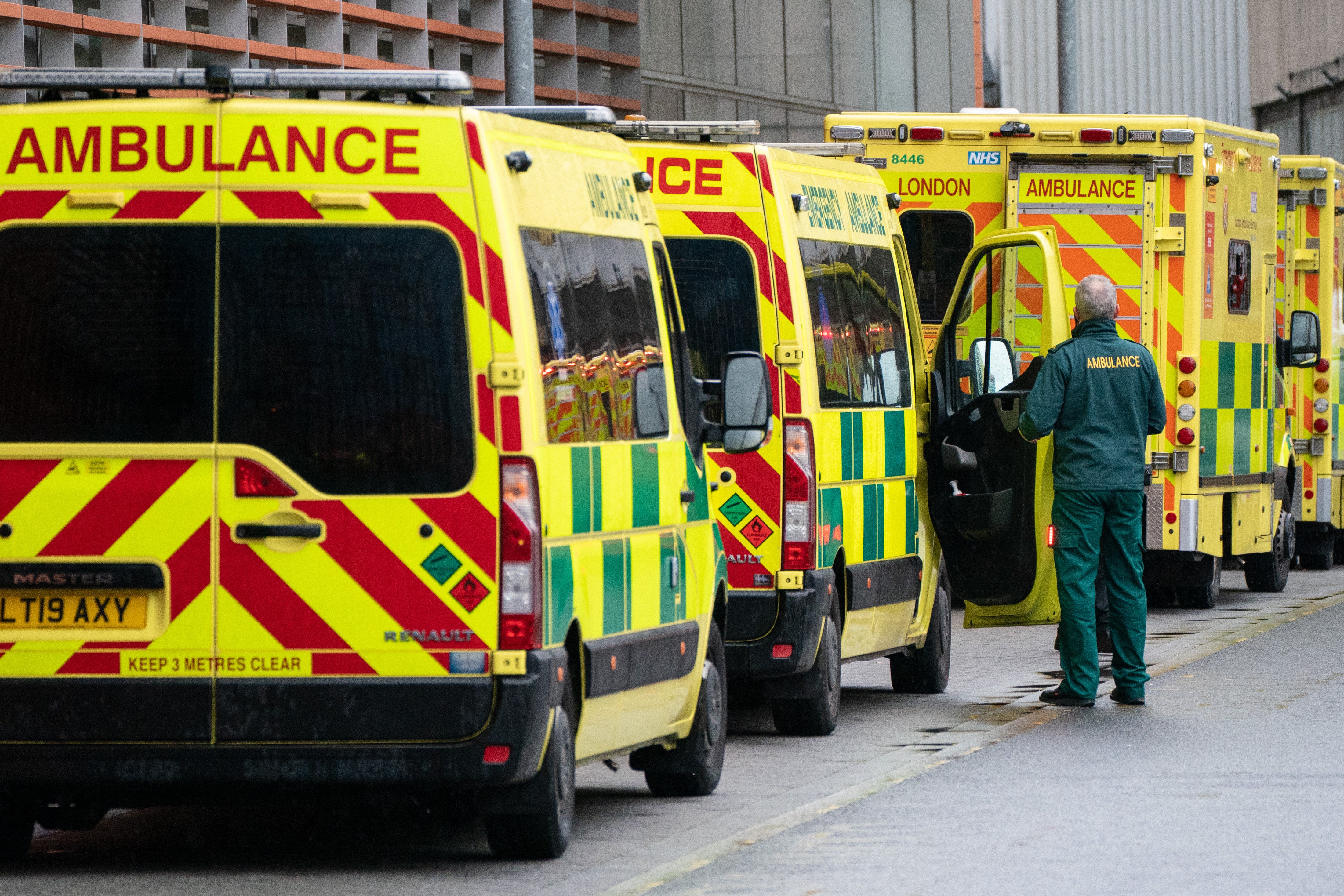Ambulance services face near-record long response times and handover delays
Nearly one in four hospital patients arriving by ambulance waited at least 30 minutes to be handed over.

Your support helps us to tell the story
From reproductive rights to climate change to Big Tech, The Independent is on the ground when the story is developing. Whether it's investigating the financials of Elon Musk's pro-Trump PAC or producing our latest documentary, 'The A Word', which shines a light on the American women fighting for reproductive rights, we know how important it is to parse out the facts from the messaging.
At such a critical moment in US history, we need reporters on the ground. Your donation allows us to keep sending journalists to speak to both sides of the story.
The Independent is trusted by Americans across the entire political spectrum. And unlike many other quality news outlets, we choose not to lock Americans out of our reporting and analysis with paywalls. We believe quality journalism should be available to everyone, paid for by those who can afford it.
Your support makes all the difference.Ambulance services in England are continuing to struggle with near-record long response times and handover delays at A&E departments, new figures show.
The average response time in December for ambulances dealing with the most urgent incidents – defined as calls from people with life-threatening illnesses or injuries – was nine minutes and 13 seconds.
This is just under the nine minutes and 20 seconds in October, which was the longest average response time since current records began in August 2017.
Ambulances also took an average of 53 minutes and 21 seconds to respond to emergency calls, such as burns, epilepsy and strokes – the second longest time on record.
Response times for urgent calls – such as late stages of labour, non-severe burns and diabetes – averaged two hours, 51 minutes and eight seconds, again the second longest time on record.
NHS England which published the figures, said staff had dealt with the highest ever number of life-threatening call-outs last month, averaging one every 33 seconds.
It also said on average more than 66,000 NHS staff at hospital trusts were off work each day in December.
Absences related to Covid-19, including people who were self-isolating, climbed from 12,508 on December 1 to 40,149 on December 31.
Meanwhile, nearly one in four patients arriving at hospitals in England by ambulance last week waited at least 30 minutes to be handed over to A&E departments.
Some 18,307 delays of half an hour or more were recorded across all hospital trusts in the seven days to January 9, NHS England data shows.
This was 23% of all arrivals by ambulance, the same proportion as the previous week and matching the level seen at the start of December.
The figure had dropped as low as 13% in the week ending December 26.
A handover delay does not always mean a patient has waited in an ambulance. They may have been moved into an A&E department, but there were no staff available to complete the handover.
Analysis of the data by the PA news agency shows that University Hospitals Birmingham Foundation Trust reported the highest number of delays of at least 30 minutes last week (852), followed by North West Anglia (495), University Hospitals of North Midlands (471) and University Hospitals Bristol & Weston (441).
University Hospitals Birmingham also topped the list for delays of more than an hour (418), followed by University Hospitals North Midlands (313), University Hospitals Bristol & Weston (287) and Worcestershire Acute Hospitals (270).
Responding to the figures, NHS national medical director Professor Stephen Powis said: “Omicron has increased the number of people in hospital with Covid at the same time as drastically reducing the number of staff who are able to work.
“Despite this, once again, NHS staff pulled out all the stops to keep services going for patients – there have been record numbers of life-threatening ambulance call outs, we have vaccinated thousands of people each day and that is on top of delivering routine care and continuing to recover the backlog.
“But staff aren’t machines and with the number of Covid absences almost doubling over the last fortnight and frontline NHS colleagues determined to get back to providing even more routine treatments, it is vital that the public plays their part to help the NHS by getting your booster vaccine, if you haven’t already.”